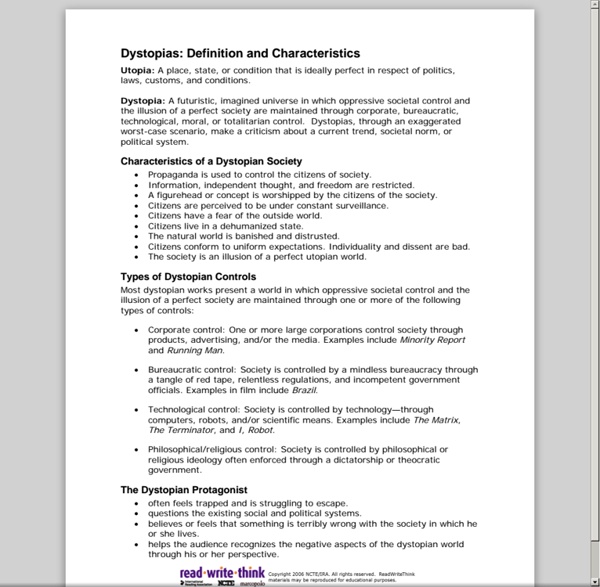



1984 - Download Free eBook The thing that he was about to do was to open a diary. This was not illegal (nothing was illegal, since there were no longer any laws), but if detected it was reasonably certain that it would be punished by death, or at least by twenty-five years in a forced-labour camp. Winston fitted a nib into the penholder and sucked it to get the grease off. The pen was an archaic instrument, seldom used even for signatures, and he had procured one, furtively and with some difficulty, simply because of a feeling that the beautiful creamy paper deserved to be written on with a real nib instead of being scratched with an ink-pencil. April 4th, 1984. He sat back. For whom, it suddenly occurred to him to wonder, was he writing this diary? For some time he sat gazing stupidly at the paper.
6 News Stories to Connect to Orwell’s 1984 Big brother really is watching you. Today we accept a certain amount of oversight by government and business as a part of daily life. Students know about all the surveillance cameras that follow them as they move about in the world. Still, they can bring a skepticism to class when they read George Orwell’s 1984. Several recent news stories may make the answer to that question less certain. Someone’s watching Granny cook her eggs. Student discussion of the articles can be guided with these questions: What freedoms or privacy rights does the system affect? If students read and discuss several of the articles, additional questions can ask them to compare and synthesize the pieces: Notice that the targets of these programs are either students or senior citizens. Note that these articles would also make a great supplement to M. [Creative Commons licensed Flickr photo by anarchosyn]
Lesson Plan: Updating Orwell's '1984' Overview | How does George Orwell’s vision of technology and its uses in “1984” compare with today’s reality? How have concerns about privacy and freedom expressed in the novel been manifested in the contemporary world? In this lesson, students compare and contrast the world, people and technologies of “1984” with those of today and create a treatment for a modern film, print or stage adaptation that revolves around current technologies. Materials | Full text of “1984,” computers with Internet access, software for podcasting and projection equipment, copies of the handout “1984” vs. Today (PDF), video cameras and film-editing software (optional) Warm-Up | Give students the following list of words from “1984”: Big BrotherdoublethinkthoughtcrimeNewspeakmemory holeOrwellian Students who have read the novel will recognize their provenance and should define them, as well as give a contemporary example of something that could be described similarly. What does Mr. Related resources: Technology 3.
Newspeak Dictionary Newspeak Dictionary Newspeak and other terminology found in Orwell's novel "1984", with some additional words which only appear in the movie. Airstrip One - Formally called England. This term demonstrates Orwell's distain for American influence Europe. It seems that Oceania (America, England, South America, Australia) looks upon Britain as little more than an ‘airstrip’ ... a launching ground into the European theater of war. artsem - Artificial Insemination - The government is pushing this method of childbirth as the ONLY method, to aid in the destruction of the family unit. Atomic Wars - The Atomic Wars took place during the 1950's. It was out of the chaos of these wars that Party emerged and seized control. Big Brother - Also refered to as simply "B.B.". And just like the gods of most religions, Big Brother is most likely fictional. But this really doesn't answer the question of whether Big Brother is a 'real' individual or not. "Nobody has ever seen Big Brother. Inner Party.